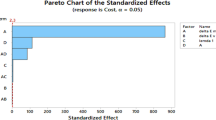Abstract
The article substantiates the principles of managing the operational reliability of continuous production through the use of soft measurements and calculations. Instead of the traditional system of technical diagnostics based on the analysis of instantaneous values of diagnostic variables, a new approach is proposed. It is based on the analysis of the intervals of changes in diagnostic variables in a given time interval. The use of the proposed approach makes it possible to reduce the sensitivity to noise interference and delays in the dynamic channels between the input and output of a continuous technological process. An intelligent decision-making system based on the Dempster-Shafer theory is substantiated. The combination of these approaches makes it possible to create a more efficient system for managing the operational reliability of continuous production compared to traditional methods. The proposed approaches are illustrated by setting specific tasks with solutions of control examples.
Access this chapter
Tax calculation will be finalised at checkout
Purchases are for personal use only
Similar content being viewed by others
References
Horst, C.: Handbook of Technical Diagnostics. Springer, Heidelberg (2013). https://doi.org/10.1007/978-3-642-25850-3
Kafarov, V.V., Ivanov, V.A., Palyukh, B.V., Babij, I.I.: Problemy obespecheniya bezopasnosti i ekspluatacionnoj nadezhnosti himicheskih proizvodstv. In: Itogi nauki i tehniki. Processy i apparaty himicheskoj tehnologii. VINITI, Moscow (1992)
Teslyuk, V., Beregovskyi, V., Denysyuk, P., Teslyuk, T., Lozynskyi, A.: Development and implementation of the technical accident prevention subsystem for the smart home system. Int. J. Intell. Syst. Appl. (IJISA) 10(1), 1–8 (2018)
Shamim Hasan, A.S.M., et al.: Multi-sensor approach for monitoring pipelines. Int. J. Eng. Manuf. (IJEM) 7(6), 50–58 (2017)
Alguliyev, R.M., Aliguliyev, R.M., Imamverdiyev, Y.N., Sukhostat, L.V.: An anomaly detection based on optimization. Int. J. Intell. Syst. Appl. (IJISA) 11(9), 87–96 (2019)
Fedulov, A.A., Fedulov, Yu.G., Cygichko, V.N.: Vvedenie v teoriyu statistiki nenadezhnyh reshenij. Statistika, Moscow (1979)
Kafarov, V.V., Palyukh, B.V., Perov, V.L.: Reshenie zadachi tehnicheskoj diagnostiki nepreryvnogo proizvodstva s pomoshyu intervalnogo analiza. Dokl. AN SSSR 311(3), 677–680 (1990)
Palyukh, B.V.: Upravlenie ekspluatacionnoj nadezhnostyu himicheskogo proizvodstva v usloviyah neopredelennosti ishodnoj informacii. Teor. osnovy him. Texnol. 28(5), 514–518 (1994)
Truxaev, R.I.: Modeli prinyatiya reshenij v usloviyah neopredelennosti. Nauka, Moscow (1981)
Borisov, A.N., et al.: Obrabotka nechetkoj informacii v sistemah prinyatiya reshenij. Radio i svyaz, Moscow (1989)
Borisov, A.N., Krumberg, O.A., Fedorov, I.P.: Prinyatie reshenij na osnove nechetkix modelej: Primery` ispolzovaniya. Zinatne, Riga (1990)
Dyubua, D., Prad, A.: Teoriya vozmozhnostej. Radio, Moscow (1990)
Marefat, M., et al.: A Dempster-Shafer approach for recognizing machine features from CAD models. Pattern Recogn. 36(6), 1355–1368 (2003)
Simon, C., Weber, P., Evsukof, A.: Bayesian networks inference algorithm to implement Dempster Shafer theory in reliability analysis. Reliab. Eng. Syst. Saf. 93, 950–963 (2008)
Ballal, P., Lewis, F.: Condition-based maintenance using dynamic decisions by Petri nets and Dempster—Shafer theory: a matrix-based approach. Trans. Inst. Measur. Control 31, 323–340 (2009)
Fang, H., Chakrabarty, K., Wang, Z., Gu, X.: Diagnosis of board-level functional failures under uncertainty using Dempster-Shafer theory. IEEE Trans. Comput. Aided Des. Integr. Circ. Syst. 31(10), 1586–1599 (2012)
Jiang, W., Zhan, J.: A modified combination rule in generalized evidence theory. Appl. Intell. 46(3), 630–640 (2017). https://doi.org/10.1007/s10489-016-0851-6
Xu, H., Deng, Y.: Dependent evidence combination based on Shearman coefficient and Pearson coefficient. IEEE Access 6(1), 11634–11640 (2018)
Acknowledgment
This project is supported by Russian Foundation for Basic Research (project no. 20-07-00199).
Author information
Authors and Affiliations
Editor information
Editors and Affiliations
Rights and permissions
Copyright information
© 2022 The Author(s), under exclusive license to Springer Nature Switzerland AG
About this paper
Cite this paper
Paliukh, B.V., Vetrov, A.N. (2022). Evolution Management of Multistage Manufacturing Based on Evidence Theory and Methods of Interval Analysis. In: Hu, Z., Petoukhov, S., He, M. (eds) Advances in Artificial Systems for Medicine and Education V. AIMEE 2021. Lecture Notes on Data Engineering and Communications Technologies, vol 107 . Springer, Cham. https://doi.org/10.1007/978-3-030-92537-6_13
Download citation
DOI: https://doi.org/10.1007/978-3-030-92537-6_13
Published:
Publisher Name: Springer, Cham
Print ISBN: 978-3-030-92536-9
Online ISBN: 978-3-030-92537-6
eBook Packages: Intelligent Technologies and RoboticsIntelligent Technologies and Robotics (R0)




